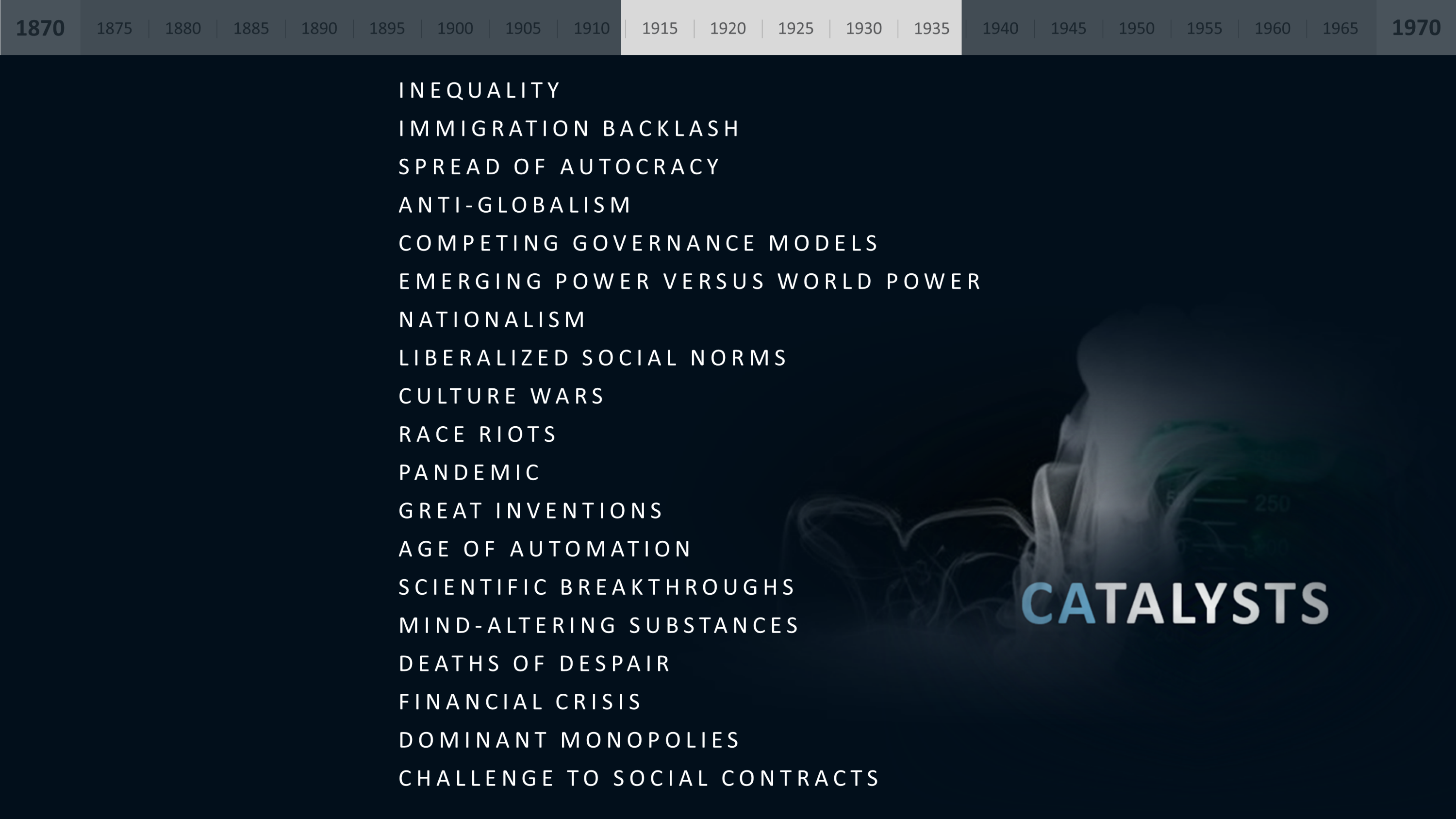One of the more eye-opening narratives in the story arc of my presentation is the comparison of our current era to the 1920s. Given the catastrophic period that followed, lessons can be learned. A great period of invention ran in parallel, helping to establish our modern standard of living. But there was another period of invention that is also very instructive. That period dates to the early 19th century and is closely associated with the Luddite movement and the birth of the factory system. In a book released this September, Brian Merchant explores this period in history and its similarities to our current era. If the 1920s sowed the seeds of the conflicts that followed, the early 19th century sowed the seeds of labor movements, the modern welfare state, and of all things, science fiction.
Continue readingIndustrial Revolution
The Journey Of Humanity

Since the dawn of the nineteenth century, a split second compared to the span of human existence, life expectancy has more than doubled, and per capita incomes have soared twenty-fold in the most developed regions of the world, and fourteen-fold on Planet Earth as a whole
Continue reading
What Does 250 Years of Innovation History Say About Our Future?
“Without good stories to help us envision something very different from the present, we humans are easily stuck in our conventional mental programming.”
Per Espen Stoknes
That quote captures a phenomenon that has plagued humans throughout history. In a recent article, Per Espen Stoknes looks at 250 Years of Innovation and what it reveals about the future. History is indeed very revealing, a fact that explains why Futurists spend so much time in the past. Whether it is the Uncanny Similarities to the 1920’s or other Lessons from History, applying history is very instructive. That quote speaks to a status quo bias that has existed in every age. As the article’s author describes, we have a strong emotional bias that prefers the current state of affairs over change. That bias now hampers our response to an ecologically destructive future. The article views the topic through this lens.
Continue readingThe Growth of Knowledge
Knowledge is the engine that drives human development – and it has been throughout history. Knowledge expanded in the hunter-gatherer days with the invention of fire. In those days, a human obtained all its food by foraging. Although the source of food did not change, fire allowed humans to cook food and consume more calories. The human brain expanded with this caloric increase, and soon we invented language – the first in a series of innovations that drove the growth of knowledge.

